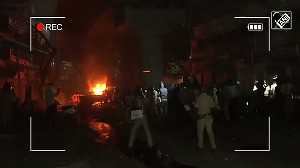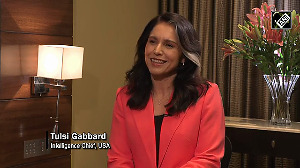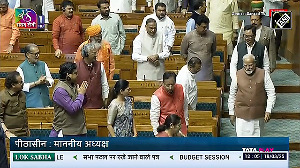Part I: Tackling the Issue Analysis Essay
Analytical Writing Assessment is a very important section of the GRE/ GMAT -- it literally analyses GRE/ GMAT aspirants.
This section comprises two essays: Issue Analysis and Argument Analysis.
Yesterday, we told you how you could do well in the Issue Analysis Essay.
Today, we'll talk about the Argument Analysis Essay. In this section, you will be given a paragraph that discusses a particular topic. Read it carefully and bring out the logical inconsistencies in the argument it propounds.
i. How is it different from Issue Analysis?
In Issue Analysis, you take sides to analyse an issue. But, in Argument Analysis, you neither refute nor support what the author has to say. Your role here is that of a critic, whose duty it is to figure out the unsubstantiated assumptions and flaws in the logic on which the piece is based.
You have to argue with strong reasoning and data, or with examples, why certain viewpoints presented by the author are erroneous. The better you reason, the higher your chances of scoring well.
ii. How to turn critic
Read the short paragraph that reasons out an incident, system or a phenomenon and note the flaws in the logic of the author.
Usually, the writer makes a lot of assumptions to draw his conclusions. The writer may also claim certain events to be the effect of a certain cause.
These may be just wild guesses by the author, without being substantiated by facts or figures.
iii. How to organise ideas
Try to jot down at least three strong anomalies in the passage.
Arrange them in descending order of importance.
An example
Let's read the following news report that appeared in a leading financial daily, and see where the flaws lie.
'The days of subsidised university education are numbered. The government is planning to hike college fees substantially as Indian universities need resources to come up to the league of Harvard, Oxford and Cambridge. So the Rs 15, Rs 20, Rs 25 fee per month will soon enter the annals of history. When banks are offering long-term educational loans in easy installments, there is no need to subsidise higher education. Students can easily repay the loan amount to the bank once they get a job, a government official said.'
A possible answer
~ The first flaw is that by simply increasing student fees of universities, no university can reach the levels of Harvard, Cambridge or Oxford.
Had that been so, then universities across the world would have increased their fees manifold and joined this coveted league.
~ The second shortcoming lies in assuming that, with higher resources at their disposal, Indian universities would elevate their standard.
A university acquires world-class status with the presence of the best students, faculty, infrastructure and environment. While resources can upgrade the infrastructure to a certain extent, it is not the only factor that makes a university world class.
~ The third assumption -- that students can afford an expensive higher education by opting for an educational loan, which they can pay back after they join a job on completion of their education -- is without basis.
One is unsure of getting a job after one completes one's education; hence the option of going in for higher studies with the help of a bank loan is fraught with much uncertainty and risk.
It may thus prevent a number of meritorious students from pursuing higher studies.
v. Introduction and conclusion
You should follow the same rules and structure as that of the Issue Analysis essay.
The only difference is that the introductory sentence here could read, 'The author's contention in the topic is based on assumptions like.... In reality, these go to act as a deterrent towards the issue of...'
DON'T MISS!
GRE, GMAT simplified
What you must know about GRE
The n-e-w MBA destination
The world's top science universities
Rituparna Roy Chowdhury specialises in helping aspiring students frame essays/ SOPs and edits thesis for PhD students, conveying their themes with better communication skills. He can be contacted at rituparnaroychowdhury@rediffmail.com.






 © 2025
© 2025